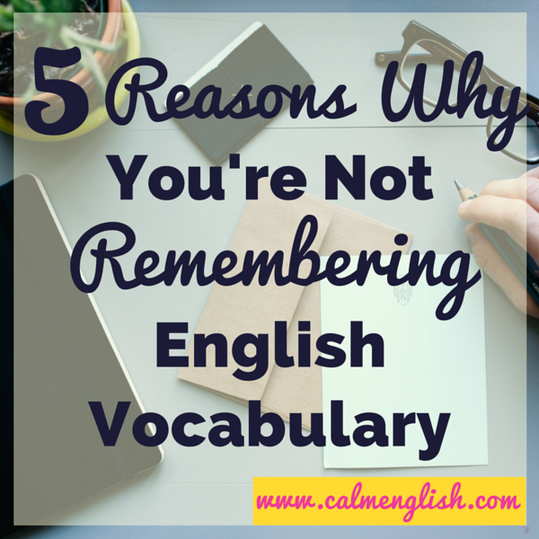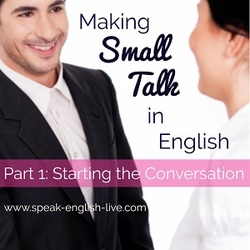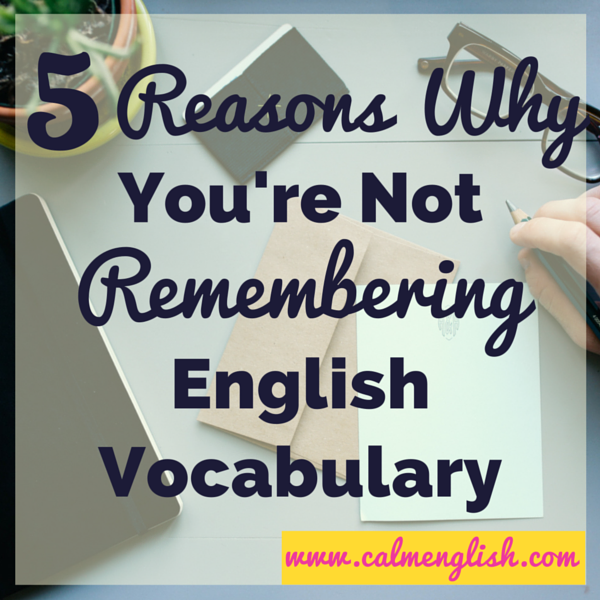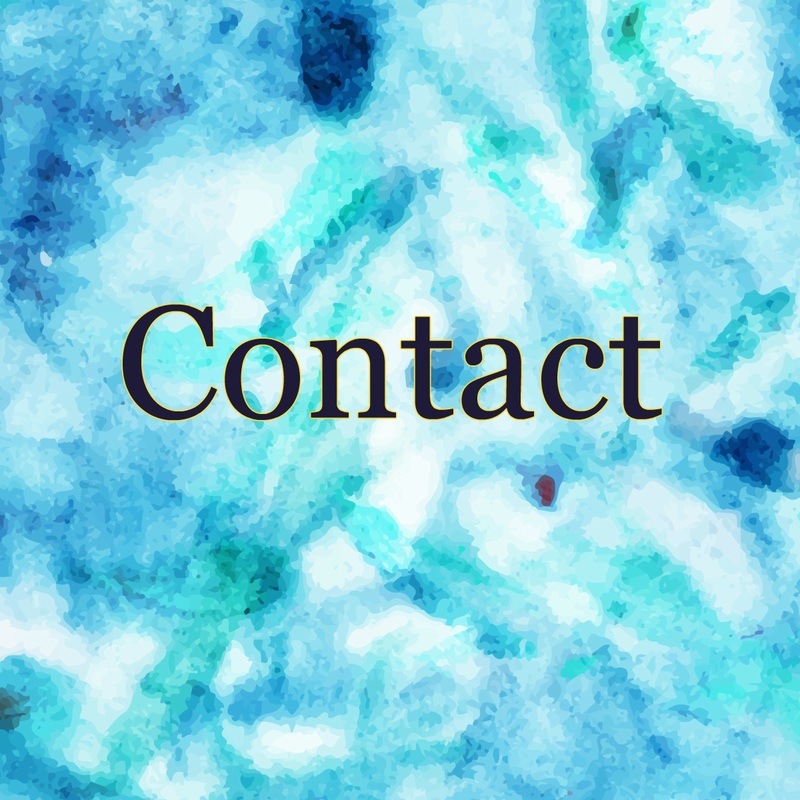|
Like this article? Share it!:
. Do you ever feel like you just CAN'T remember the words you want to use? This can be so frustrating. Maybe you can listen to a conversation and understand a lot, but when it's your turn to speak, you just "forget" the words you need. There are certain words that I never remember. But, I KNOW I would remember them if I stopped making these five mistakes when learning new vocabulary. I know I make these mistakes. I even see some of my very motivated students making these mistakes! Read on to see what you might be doing wrong when trying to remember vocabulary: Here are the top 5 reasons why you’re not remembering more English vocabulary. Mistake #1: You’re unorganizedThis is reason number one, because it’s the most common problem I see with my students when they come to me for conversation coaching. One of the first things I ask my new students is if they have an English notebook or use flashcards. At least 90% of them say no! QUICK FIX: If you are one of those 90%, go out and buy yourself a notebook today. Or just look around your house - you might already have a notebook or journal you can use to create your memory system. Start writing down new words and phrases you want to remember. Mistake #2: You aren’t using technology to help youOf the 10% that DO say, "Yes, I have a way to remember vocabulary," many of them use digital flashcards. Really, the most common way of organizing vocabulary (after having a notebook) is using flashcard apps. Flashcard apps are amazing. It’s like a brain outside of your own brain. A more intelligent brain that can REMIND YOU when you need to review a word. QUICK FIX: Use this technology! Here are some of the top flashcard apps: Anki Mosalingua Mental Case (also called Studies) Mistake #3: You Translate lists of wordsThrow your lists away! Okay, don’t throw them away, but know that they need to evolve. If your list looks like this...: Book - libro Afternoon - tarde Heart - corazon ... etc... ...all this is doing is helping you think slower. You are training your brain to ALWAYS go back to thinking in your native language. QUICK FIX: If you really, really need your native language translation, at least add in a lot MORE words in English as well in your notebook or flashcards. Copy and paste the definition from an online dictionary (I recommend this one). Write an example sentence along with the word. Words are not islands… they work together with other words, so study them in their native environment - in whole sentences! Mistake #4: You learn similar words togetherStudies have shown that if you learn similar words together, it can actually be HARDER to remember them individually. I am definitely guilty of learning numbers all together. And emotions, and fruits and vegetables. This is just the way we were taught to do it! But we didn't learn words like this - in lists - in real life as children! We didn't learn this way because it's confusing. It makes you mix up similar words. QUICK FIX: If two similar words are giving you trouble, study them on different days. Create very different stories in your head for each word. Try to DISCONNECT them. Separate the similar words (on different pages in your notebook and on different lists in your flashcards). Mistake #5: your vocabulary words Have no contextThink about when you had to take a history test in high school. Did you try to memorize dates and names from a list for a history test? Maybe the test was on dates and names about Genghis Khan's story, let’s say. If all you studied was a list, you probably remember it being really difficult to memorize the facts. But let’s say you studied AND watched a movie about Genghis Khan. Because you saw the whole story in context, it was easier to remember. When there is a story or a context you remember so much more. QUICK FIX: Make up a little story with each word you need to memorize, and you WILL remember that word. Humans love stories. We remember whole stories. We understand concepts so much easier through stories. Whatever the word or phrase is that you are working on, close your eyes and imagine a little story along with the word. Or write down a little story to go with the word. It can be 2 or 3 lines long - nothing crazy! You can read all about this process in another article I wrote on remembering vocabulary. Get Creative; SEE WHAT WORKS FOR YOUIt's really about getting organized. It's also about being creative and trying new things. Try out some of these tips, and see what works for you to remember more vocabulary. Here are the top five mistakes again:
COME TO MY FREE MASTERCLASS ON REMEMBERING VOCABULARY!If you are looking to remember more English words, come to my free masterclass on the topic. I'll be teaching this class with fellow English teacher and coach, Chris Rush of Better Business English. We’ve helped hundreds of English students in our careers to create effective study systems and remember and speak more English. So if you have those really important words and phrases that you HAVE to remember for your next business meeting, come to this free masterclass. You'll learn:
Click here or on the image below to save your seat! (We’ll also have a replay, so if you can’t make it live, you can watch later). For those that show up live, we have a special gift for you. Hope to see you in this free online class!
And don't forget to comment below: Which of these vocabulary mistakes do you need to stop making? Write in the comments below! Take care, Sabrina
2 Comments
|
Click to Learn About
|










